The Basics of Genetics for Health and Wellness


Inside every cell of your body lies an instruction manual written in just four letters, A, T, C, and G. These letters repeat billions of times across your chromosomes, spelling out everything from your eye color to how you process that morning cup of coffee.
Here's what's fascinating: you share 99.9% of this genetic code with every other person on Earth. Yet that tiny 0.1% difference? That's where your story gets personal. That's where we find clues about your health, your risks, and even your superpowers.
Decoding the Manual
When scientists study genetics for health purposes, they're not reading your entire DNA cover to cover (that would take forever). Instead, they focus on specific "hotspots", places in your genetic code where variations are known to matter.
Think of it like highlighting key passages in a book. Scientists have identified thousands of these meaningful spots where small differences can affect everything from how you metabolize vitamins to how your muscles recover after a workout. Not every spot has been studied yet, but we know enough to start making some pretty powerful connections.
The Family Inheritance: Understanding Alleles
Here's where your parents come into the picture. You inherited DNA from both mom and dad, which means you're walking around with two versions of every gene, these versions are called alleles.
Let me give you a real-world example. Remember that coffee I mentioned? Some people have two "fast" caffeine-processing alleles, meaning they can drink espresso at dinner and still sleep like a baby. Others have one fast and one slow allele, or two slow ones, which explains why some folks feel jittery from a single cup while others can mainline cold brew all day.
These allelic differences aren't just coffee party tricks, they're the foundation for understanding how your body uniquely responds to nutrients, exercise, stress, and medications. They're not the whole story, but they're an excellent starting point for crafting a health plan that actually works for your body.
SNPs: The Typos That Matter
Now for the star of the genetic show: SNPs (pronounced "snips"). The acronym stands for single nucleotide polymorphism, but let's skip the tongue twister and focus on what they actually are.
A SNP is essentially a one-letter typo in your genetic code. Imagine your DNA typically reads "C-A-T" at a certain spot, but yours says "C-G-T" instead. That single letter swap? That's a SNP.
Most SNPs are completely harmless, like typos that don't change the meaning of a sentence. But some can significantly impact how your body functions. One SNP might affect how efficiently you convert folate into its active form. Another might influence how your brain handles feel-good chemicals like serotonin or dopamine. Yet another could determine whether you're more likely to be a power athlete or an endurance champion.
Variants: Different, Not Defective
When your DNA differs from the most common sequence, scientists call it a variant. Here's the crucial thing to understand: variants aren't defects or mistakes. They're simply differences, like having curly hair instead of straight, or being able to taste certain bitter compounds that others can't.
Some variants give you advantages (like better muscle recovery or enhanced vitamin D absorption), while others might mean you need to be more mindful about certain aspects of your health. The key is knowing which variants you carry so you can work with your biology, not against it.
The Power of Polygenic Risk Scores
Here's where genetics gets really sophisticated. Most health conditions aren't caused by a single genetic variant, they're influenced by hundreds or thousands of small effects across your genome.
Enter polygenic risk scores (or PRS's). These scores are like a genetic weather forecast, combining information from many SNPs to predict your likelihood of developing conditions like heart disease, diabetes, or Alzheimer's.
Important note: these scores aren't crystal balls. Having a higher risk score doesn't mean you're doomed, just like having a lower score doesn't mean you're invincible. What they do give you is incredibly valuable: the chance to take preventive action based on your unique risk profile. But, at the same time, KNOWING where the risks are means we can put a game plan together to hold them off or avoid them all togeher.
Beyond the Basics
SNPs and alleles and PRS's are just the beginning of the genetic story. There's a whole world of other genetic variations, chunks of DNA that might be duplicated or missing, small insertions or deletions, and even chemical tags that affect how your genes are expressed without changing the underlying code (that's epigenetics, and it's absolutely mind-blowing).
The beauty of modern functional medicine is that it doesn't look at genetics in isolation. Your SNPs are considered alongside your lab results, lifestyle, stress levels, sleep patterns, and environment to create a truly personalized health strategy.
What This Means for You
Understanding your genetics isn't about discovering you're genetically "blessed" or "cursed." It's about getting an owner's manual for your unique body.
Maybe you'll discover you need methylated B vitamins because your folate processing genes are sluggish. Perhaps you'll learn that your genes suggest a slower muscle recovery time, so you'll build in extra rest days. Or you might find out that certain medications are likely to work better (or worse) for you based on how your body metabolizes them.
This isn't fortune-telling, it's personalized science. And in a world where we're drowning in one-size-fits-all health advice, understanding your genetic blueprint might just be the key to finally finding what works for you.
Your DNA isn't your destiny. It's your starting point. And once you know where you're starting from, you can chart a much smarter course toward where you want to go.
Let us know if you have any questions, we're always happy to chat about this stuff.



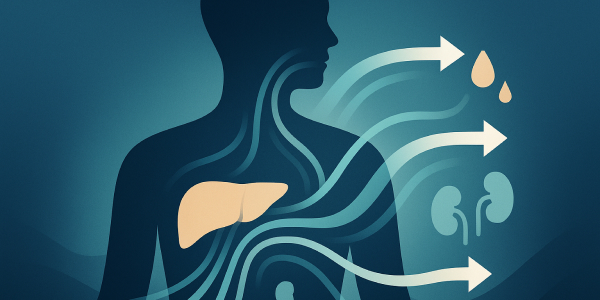
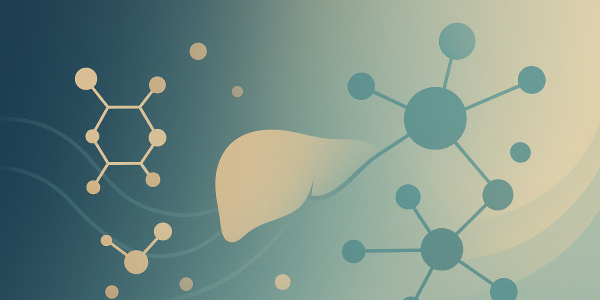


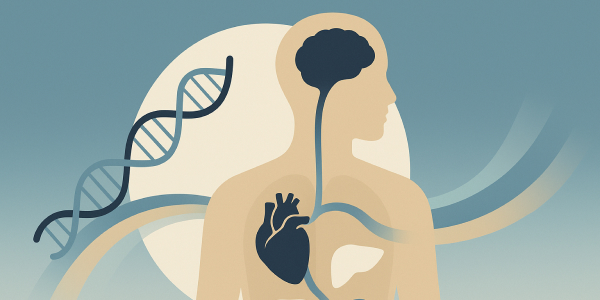
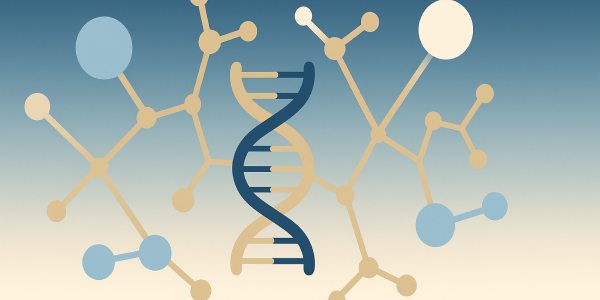

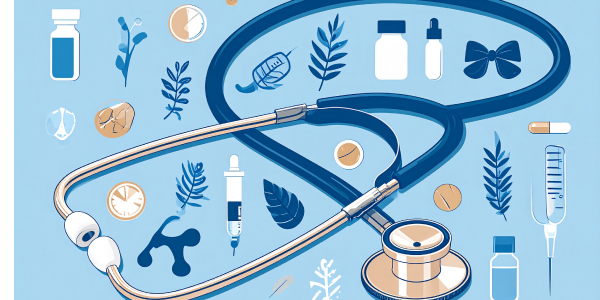
.svg)